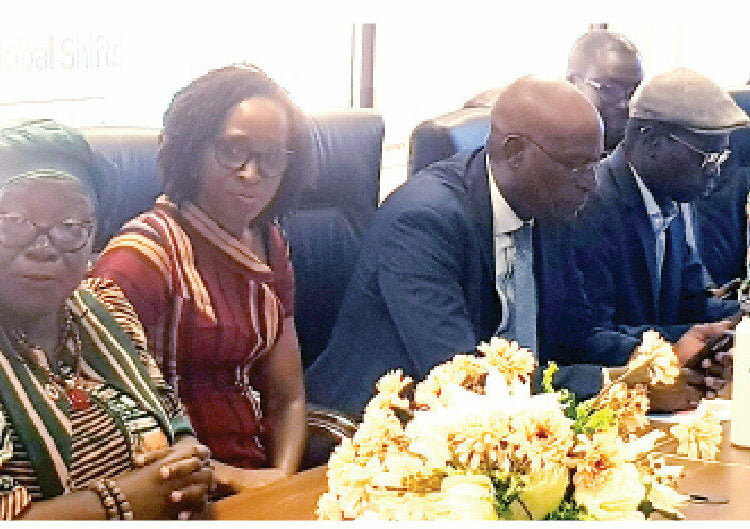The economic crisis confronting Nigeria at the moment is huge and the risks it poses for the future of the most populous country in Africa, with a surging youth population is grim indeed.
It was on this premise that the United Nations Development Programme (UNDP) and other partners have urged the Nigerian authorities to embrace innovative financial models to fund development projects in Nigeria in order to reduce reliance on foreign donors and external borrowing especially in this era of low foreign aid.
This was the crux of discussion during a high-level breakfast dialogue on Securing Nigeria’s financial future amid global shifts convened by the UNDP in Abuja on Thursday as part of the official visit of Dr. Raymond Gilpin, UNDP Africa Chief Economist to Nigeria.
Reforms have been at the center of the call for a new economic paradigm for Nigeria and Africa without which a bigger crisis may befall the country, which is facing dwindling economic fortunes amid high levels of unemployment especially among the youth.
During the discussion, the United Nations Resident and Humanitarian Coordinator, Mohamed Fall, warned that the World Bank latest figures that Nigerian now has 139 million poor people, an additional 10 million people plunged into the poverty pool in the last two years, must be a wakeup call to save the country from going into deeper crisis.
“Nigeria’s demography is big but if we don’t address the issues Nigeria will become a global problem if the population continues to grow in poverty and all other miseries by 2050. That is why we are challenged to produce a development agenda for Nigeria. We need to speed up skill development and we need exponential progress to tackle the problem of Nigeria’s 18.5million out-of- school children,” he said.
He advised the Nigerian authorities, development partners, public and private enterprises to draw up new strategies to reduce dependence on external borrowing and foreign aid, especially now that the global mechanism to enhance those is shrinking.
He added that the domestic resources within Nigeria can be activated to invest in climate smart agriculture, which can generate 3 million jobs and renewable energy which can generate 12 million jobs for Nigerian youths.
UNDP Resident Representative, Elsie Attafuah, said the idea is to harness domestic resources in which the country has huge potential and invest into critical sectors. She said “We are moving away from funding to financing. It means we are looking at it broadly from the domestic point of view and see how we can explore opportunities in the country and external point of view.
“There are challenges but there are opportunities. We need a vertical and horizontal development trajectory,” she noted.
Nigeria’s Minister of Finance, Wale Edun, noted that the country is embarking on deep reforms that will create an enabling environment for more investment to thrive in the country especially with the private sectors.
Represented by the Special Adviser to Nigeria‘s President on Finance and Economy, Sanyade Okoli, the Minister said the reforms being embarked upon by the government will deepen fiscal discipline and support the private sector.
“Loans from its own resources cannot fund the level of investment that is required to drive the kind of growth that we are looking at to improve the lives of Nigerians,” she said, adding that Nigeria’s private sector must be strengthened to serve as the engine of investment.
Dr. Gilpin in his submission said there must be a master plan to transform Nigeria’s resource abundance to fuel development, adding that the investment master plan must look at diversification in critical sectors especially in terms of adding value to goods from Nigeria through processing to at least 15%.
He urged Nigeria to improve in its Credit grade rating which is currently low and to optimize domestic resources and monetize them.
Nigeria Stands at a critical crossroads in its development trajectory. Debt servicing already consumes more that 60% of the federal revenues, leaving limited fiscal space for much-needed investments in infrastructure, healthcare, education and job creation. Without bold reforms and new financing models the country risks falling short of its ambitious transformation agenda.
The dialogue provided the platforms for experts to explore solutions that reduce dependence on external borrowing while mobilizing domestic resources. It also examined strategies for shifting from aid-led development to investment- driven partnerships.
The experts discussed how to de-risk Nigeria’s economy to attract large-scale private and institutional capital and highlighted the role of innovations, fintec and regional financial integration as accelerators of economic resilience and inclusive growth.





